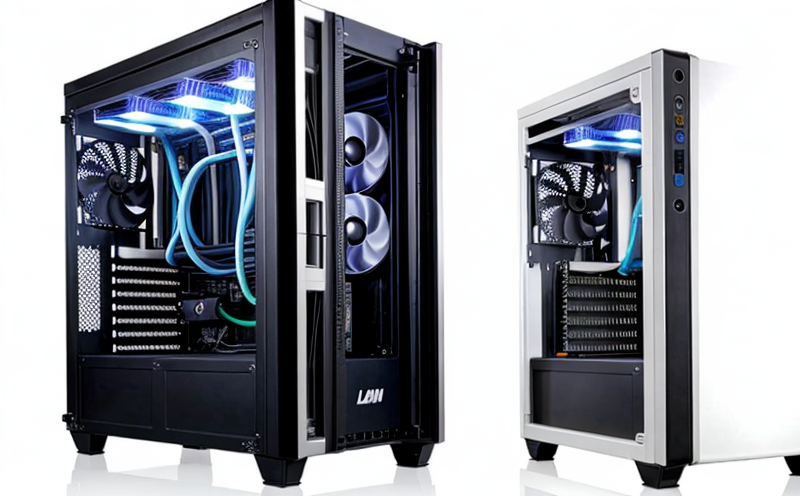EN 16798 Part 3 HVAC System Capacity Evaluation
The European standard EN 16798-3 is pivotal in evaluating the capacity of HVAC (Heating, Ventilation, and Air Conditioning) systems. This part specifically focuses on the determination of cooling capacity for air conditioning units operating under standard conditions as defined by ISO standards.
Our laboratory adheres strictly to these guidelines, ensuring accurate and reliable performance evaluations that meet the highest industry standards. Compliance with this standard is crucial for manufacturers aiming to demonstrate the reliability and efficiency of their HVAC equipment in real-world applications.
The testing process involves subjecting the air conditioning units to a series of predefined conditions designed to replicate typical operating environments. This includes controlled temperature, humidity levels, and airflow rates. The purpose is to assess how efficiently the system can maintain desired comfort levels while consuming minimal energy resources.
One critical aspect of this evaluation is ensuring that each component within the HVAC unit functions optimally under specified parameters. By doing so, we not only provide manufacturers with valuable data but also help them identify potential areas for improvement in their designs or manufacturing processes.
The results from EN 16798-3 tests are essential for several reasons:
- They offer a standardized method of measuring cooling capacity across different models and brands.
- This allows for fair comparisons between various products available on the market.
- It helps in setting realistic expectations regarding what kind of performance users can expect from their chosen HVAC system.
The accuracy and consistency provided by this testing procedure make it an indispensable tool for both quality assurance departments within companies as well as regulatory bodies overseeing product safety and efficacy. With our expertise in conducting these tests, we ensure that every measurement adheres to the stringent requirements set forth by EN 16798-3.
Understanding the specifics of this standard is important because it ensures that all HVAC equipment undergoes rigorous scrutiny before being released into commercial use. This not only protects consumers from substandard products but also promotes innovation among manufacturers who strive for excellence in their field.
In summary, EN 16798-3 plays a vital role in maintaining high standards within the HVAC industry. By adhering to these stringent criteria during our testing processes, we contribute significantly towards promoting trustworthiness and reliability throughout every stage of product development and deployment.
Industry Applications
The application of EN 16798-3 extends beyond mere compliance; it serves as a benchmark for quality assurance across multiple sectors including commercial buildings, residential complexes, industrial facilities, and public infrastructure projects. In these environments, maintaining optimal indoor climate conditions is essential not only for occupant comfort but also for productivity levels.
For instance, in large office spaces where hundreds of employees work simultaneously, accurate temperature control can significantly affect employee satisfaction and overall performance. Similarly, hospitals require precise regulation to ensure patient recovery rates remain high while minimizing energy costs associated with maintaining comfortable environments.
In industrial settings too, proper HVAC management ensures efficient operations by preventing overheating or overcooling which could lead to machinery failures or reduced output efficiencies. Moreover, it contributes positively towards reducing carbon footprints through optimized usage patterns based on actual needs rather than assumptions.
By incorporating EN 16798-3 compliant systems into their facilities, organizations demonstrate their commitment to sustainability and customer satisfaction. This translates directly into enhanced reputation and competitive advantage in today’s market where environmental responsibility is increasingly becoming a key factor influencing purchasing decisions.
Eurolab Advantages
EuroLab stands out as one of the premier laboratories specializing in HVAC equipment testing, particularly when it comes to meeting the stringent requirements outlined by EN 16798-3. Here are some key advantages that set us apart:
- Comprehensive Testing Capabilities: Our state-of-the-art facilities allow us to perform a wide range of tests necessary for evaluating HVAC system capacities accurately.
- Dedicated Expertise Team: Leveraging our team’s extensive experience in the field, we ensure that all tests are conducted with precision and accuracy.
- ISO/IEC 17025 Accreditation: Our laboratory is certified to perform calibrations and tests according to international standards, ensuring reliable results every time.
- Rapid Turnaround Times: We understand the importance of timely delivery in today’s fast-paced business environment. Therefore, we strive to provide quick turnaround times without compromising on quality.
- Transparent Reporting: All test results are presented clearly and concisely, making them easy for clients to understand and act upon.
- Continuous Improvement: Keeping abreast of the latest advancements in testing methodologies and technologies allows us to deliver even better services continuously.
- Customer Satisfaction Guarantee: Our commitment is always to exceed expectations, ensuring complete satisfaction from our clients.
At EuroLab, we pride ourselves on providing unparalleled service that meets or exceeds industry benchmarks. Whether you need routine checks or one-off assessments, rest assured that your HVAC equipment will receive the best possible care under our expert hands.





